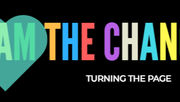Gratitude is the direct way out of comparison.
- Nov 16, 2022
- 7 min read
TODAY CONTINUING ON THE SERIES; GRATITUDE AND HOW IT CHANGES OUR BRAIN TO BE HAPPIER. PLUS, CONTINUING ON THE BOOK TEN-MINUTE RELAXATION FOR MIND AND BODY. ALSO, CANCER: CIVILIZATION’S -NO. 2 KILLER?????
Hello followers,
Happy Hump Day!

Sometimes we all need a little reminder to appreciate the good things in our lives.
Typically, this reminder comes around Thanksgiving, but Thanksgiving do not show you how to express that gratitude all year round.
Plus, life is short, and we should try to express our gratitude all the time, no matter how big or how small.

This gratitude post that Dan and I are posting, I hope will inspire you to express thanks in ways you may not have thought of and see opportunities for gratitude in recent places.
There are uplifting posts and positive affirmations scattered throughout that you can tell yourself daily to embody a more grateful way of being.
Dan and I will start thanking you for reading these gratitude post!

Whether you are overcoming adversity or trying to achieve success in life, we always want more.
Often, our desire to want more blinds us of what we already have.
And while we are too busy chasing what we do not have, we forget to be thankful for everything we do.
That is why it is important to take a step back occasionally and realize how far an attitude of gratitude can get us.
Not to mention, there are so many benefits to practicing gratitude on a regular basis.

Continuing, GRATITUDE AND HOW IT CHANGES OUR BRAIN TO BE HAPPIER.
So, how does gratitude impact the mind and body?
4 – Gratitude physically changes the brain

This is perhaps the most important finding from the study.
Three months after the counseling sessions began, the professors took some of the people from the gratitude writing group and some from the group that did not do any writing.
They wanted to know if their brains looked any different due to the gratitude exercise (or lack thereof).
They measured their brain activity using an fMRI scanner while participants from each group did a “pay it forward” task.

In the exercise, a benefactor regularly gave the participants a small amount of money.
This benefactor asked that the participants only pay it forward if they felt grateful.
Our participants then decided what percentage of the money, if any, they would donate to a worthy cause.

A fun fact: the professors in the study did donate the proceeds to a charity.
From the authors of the study:
“We wanted to distinguish donations motivated by gratitude from donations driven by other motivations, like feelings of guilt or obligation.
So, we asked the participants to rate how grateful they felt toward the benefactor, and how much they wanted to help each charitable cause, as well as how guilty they would feel if they did not help.

We also gave them questionnaires to measure how grateful they are in their lives in general.
We found that across the participants when people felt more grateful, their brain activity was distinct from brain activity related to guilt and the desire to help a cause.
More specifically, we found that when people who are generally more grateful gave more money to a cause, they showed greater neural sensitivity in the medial prefrontal cortex, a brain area associated with learning and decision making.
This suggests that people who are more grateful are also more attentive to how they express gratitude.

Most interestingly, when we compared those who wrote the gratitude letters with those who did not, the gratitude letter writers showed greater activation in the medial prefrontal cortex when they experienced gratitude in the fMRI scanner.
This is striking as this effect was found three months after the letter writing began.
This indicates that simply expressing gratitude may have lasting effects on the brain.
While not conclusive, this finding suggests that practicing gratitude may help train the brain to be more sensitive to the experience of gratitude down the line, and this could contribute to improved mental health over time.

NOVEMBER 16th, Dan, and I thought on continuing this segment with the series with some fun; What is it about November that is so significant during this month?

Clarinet Day – November 16, 2022
Dan and I picked this holiday, for studies have been done on how important music is to our health.
Do you know anyone that plays the clarinet?
Well, today is clarinet day!
Clarinet Day is celebrated on November 16 every year, and if you are an aficionado of music, this day is for you.

Do you know that it has been 3,000 years since the first hornpipes were created in Ancient Greece?
A clarinet is like a single-reed instrument and is a blowing-type musical instrument with a cylindrical body and a flared bell at the bottom.
It is a musical instrument widely used in bands and orchestras, especially in the military.
It comes from the family of woodwind instruments.
Clarinet Day was created to give credit to this amazing instrument that is a favorite among most musicians around the world.

There are many theories as to how the clarinet came into existence.
It is said that the clarinet evolved from the ancient woodwind instrument named ‘chalumeau.’
The chalumeau is also said to be the ancestor of the instrument ‘oboe.’
Even today, a clarinet’s lower register is referred to as chalumeau.
The first clarinet is said to have been developed in the 1700s by German musician Johann Christoph Denner.

It was made in the key to C. Clarinets today are usually made in the key of B flat.
Other modifications in the clarinet followed in the 1800s.
For example, the mouthpiece was made to face backward, instead of the front, which gave clarinetists the ability to play the instrument more smoothly.
German musician Heinrich Baermann forward brought this prototype.
Later, thirteen keys were added to the clarinet, giving the clarinetists the ability to play the chromatic scale.

Thereafter, many new versions and types of clarinets emerged depending on the key used, the size, or the range of registers.
The clarinet was used as the voice for the wolf in the famous composition “Peter and the Wolf.”
The clarinet produces soothing music, which is why it finds use in different genres of music such as rock, jazz, and folkloric.
It is said that Mozart loved the sound of clarinets.

Clarinets are also used widely in the military orchestra.
Clarinet Day was created to give recognition to this marvelous instrument that is a favorite amongst musicians around the world.

Time is precious and is priceless, so Dan and I will continue each day to pull from a box of 365 inspirational quotes; one quote and share with you.
Today is:
IF YOU DON’T ASK BECAUSE YOU MIGHT BE REFUSED, YOU’VE ALREADY REFUSED YOURSELF.

Today Dan and I will be continuing the book, Ten-Minute Relaxation, For Mind and Body by Jennie Harding.
Whenever you are feeling under pressure, ten minutes is all you need to relax totally, using tools that are always with you; your senses.
This book is packed full of wonderfully simple ideas and exercises for using sight, taste, smell, hearing, and touch and that vital sixth sense of intuition to rebalance your energies and bring you back into harmony with the natural world around you.

Identify your favorite sensory relaxation solutions and combat that stress!
Per Dan and my experience this is another component in keeping ourselves healthy, meditation.
By using your five senses, you can learn to relax in just ten minutes.

CHAPTER 2; THE SENSORY JOURNEY; SMELL
SMELL; TIME CYCLES AND RHYTHMS-
AROMA BREAK-

10-minute exercise, you can match your essential oils to your moods and the times of the day; start the day with uplifting aromas.
MORNING-

These are oils with aromas that will stimulate and freshen the mind.
Rosemary- green, bracing, pungent
Tea tree- fresh, medicinal
Lemon- zesty, clean, bright
Frankincense- uplifting, resiny, sharp.
Tomorrow, MID-DAY-

As I ponder over all that I have learned, I have come to find that we all have our own blueprint.
Our bodies are precious and there are many components in taking care of them.
Throughout the blog, Dan and I have related the separate ways through body, heart, and soul.
It is all about power of knowledge and learning to take care of yourself, keeping your cells happy.
Our immune system is one of the key factors in keeping healthy.
It is important to know how it works!

Cancer: Civilization's - No. 2 Killer
Continuing today on Important--Note Well,
Billions and billions of dollars have been spent on desperate research to find a cure for cancer, a quest doomed to failure from the start even though doctors talk about various rates of cures obtained by surgery, radiation, and chemotherapy.

A person is regarded as cured of cancer if after the operation the cancer does not re-appear in five years, and all through that anxious five years or in the next maybe less anxious five years (if the patient lasts that long) nobody knows when the cancer will "strike" again.
Cancer can be considered "cured" only if the causes underlying it are understood and permanently
removed, so that the affected tissue can become healthy again by the process of natural healing, called a spontaneous remission in medical parlance.
The simple solution to the cancer problem is to stop doing the things that cause cancer.

At the meeting of Nobel Laureates in Lindau, Germany on 30 June 1966, Dr Otto Warburg concluded his address as follows: "Nobody today can say that one does not know what cancer and its prime cause be.
On the contrary, there is no disease whose prime cause is better known, so that today ignorance is no excuse that one cannot do more about prevention.
The prevention of cancer will come there is no doubt, for man wishes to survive.

But how long prevention will be avoided depends on how long the prophets of agnosticism will succeed in inhibiting the application of scientific knowledge in the cancer field.
In the meantime, millions of people must die of cancer unnecessarily."
CONTINUE TOMORROW-

The PHRASE TO REMEMBER; Health is Wealth.
We stand by this and continue to do daily; walk, meditation, and Qigong.
If you would like to follow with us; hash tag words #walk, #meditation #Qigong on the right of the main blog page.
COMPARISON
Gratitude is the direct way out of comparison. #gratitude#direct#wayout#comparison#inspirational#motivational#newbeginnings✨

Until Thursday, learn to be thankful for what you already have while you pursue all you want.
























Comments